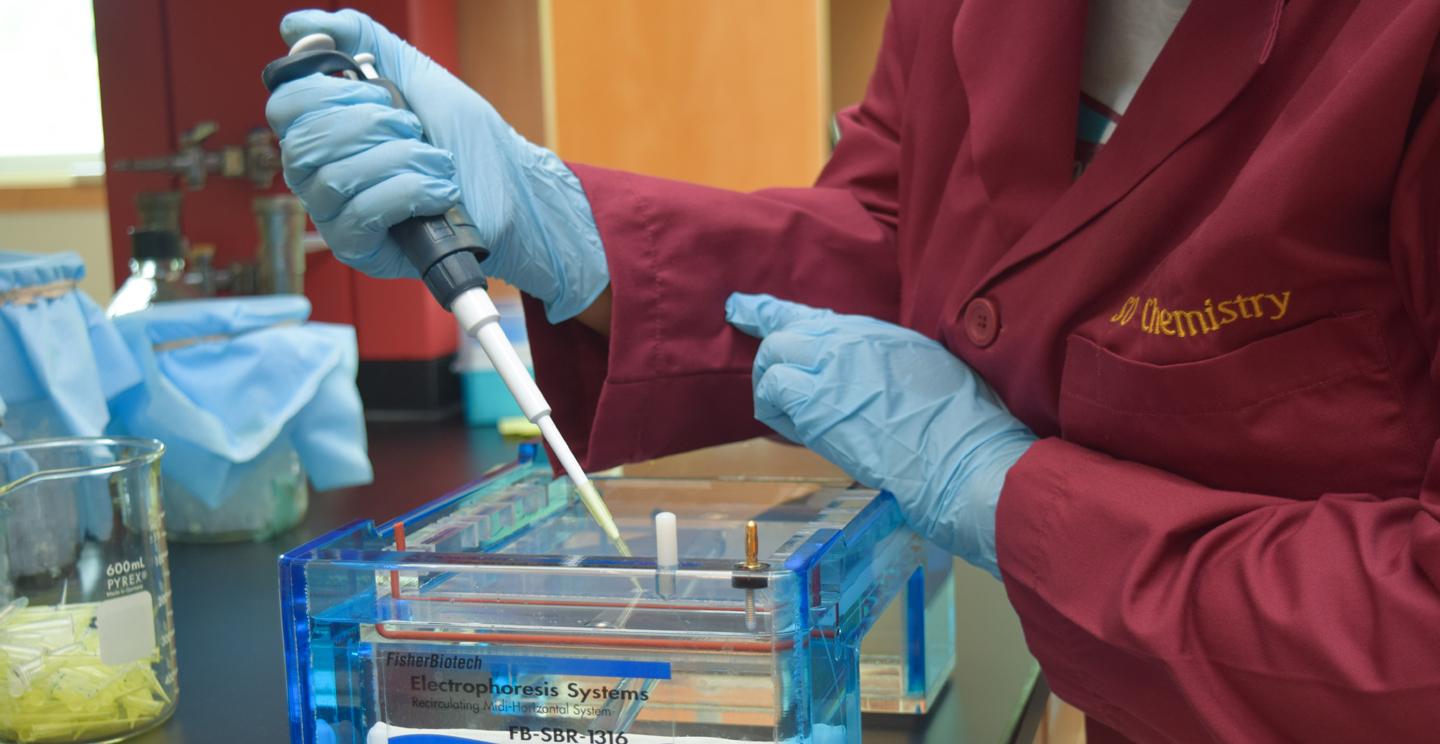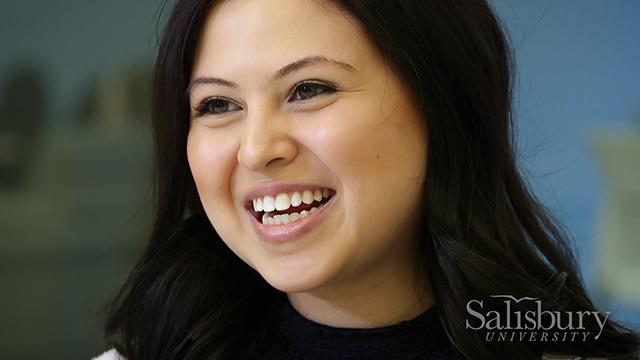
Chemistry Major
Everything matters: Chemistry, the study of how matter changes, is often called the “central science.” It connects to fields such as genetics, medicine, forensics, nanotechnology, drug discovery, the environment and even computer hardware. A degree in chemistry prepares you for a variety of exciting and rewarding careers, and 黑料网 has the tools to cultivate you into a master of the field.
Why Choose a Chemistry Major at 黑料网?
Chemistry is more than wearing goggles and tinkering in a lab. The number of careers in chemistry that can be forged with a chemistry degree is surprising. A major in chemistry may lead to careers in health, forensics, law, IT, and the development and testing of new materials that are used in numerous ways (car parts, agricultural products, medicines, plastics for toys or medical equipment and more).
Here are some reasons SU’s chemistry program stands out from the crowd:
- Outstanding faculty. The chemistry faculty at SU maintain an open-door policy to make themselves available outside of class to help you with the course material. Many of the faculty hold review sessions, problem sessions and homework sessions in addition to their office hours. In addition, the upper-level chemistry classes tend to be small, which permits one-on-one interaction between students and faculty.
- An engaging community. Faculty tend to know chemistry majors by sight and name. They also interact with SU’s chemistry club, The Chem Society. With some faculty in attendance, members of this club go bowling, have end-of-the-semester picnics and weekly Friday barbecues. In addition, students assist faculty with demonstration shows and other presentations. Members also have fun while conducting fundraisers.
- Hands-on opportunities. Students may expand their hands-on experience through research with chemistry faculty. Students can also apply to be lab assistants helping set up experiments. Those interested in teaching, or simply deepening their knowledge of chemistry, may also apply for positions as grading assistants for faculty.
- The latest technology. It is the department’s philosophy to provide access to as much current instrumentation as possible to make your career in chemistry a reality. For example, through regular coursework, our students will operate the department’s FT-IR with and without an ATR, UV-Vis, HPLC, GC, GC-Mass Spec, AA (or ICP), as well as the department’s $300,000 400 MHz NMR spectrometer. Sound confusing right now? Don't worry! You'll be an expert by the time you graduate!
For those interested in this field, SU also offers a chemistry minor, which can complement many other SU majors.
Chemistry Major Tracks
The Department of Chemistry offers eight different tracks leading to a Bachelor of Science in chemistry, including two tracks that are certified by the . These tracks foster development and expression of rational thought and help prepare students for admission to Ph.D. programs in chemistry, related professional fields such as medicine and pharmacy, and positions in the chemical industry.

Meet Julia - Chemistry Major
Find out how Julia’s research at SU is preparing her to pursue a career in pharmacy.
Careers for a Chemistry Major
What jobs can a chemistry major get? Our Chemistry Department offers a broad selection of tracks for students seeking careers in chemistry and the physical sciences. You could find your element with one of the following chemistry career paths:
- Agricultural Scientist
- Biochemist
- Chemical Engineer
- Medical Doctor
- Nutritionist
- Pharmacologist
- Toxicologist
Chemistry Faculty with Real-World Experience
Our chemistry faculty is heavily involved with students, always making themselves available to help with your learning and personal growth.
Meet Your Chemistry Faculty:
David Keifer

Dr. David Keifer works side by side with his students as they conduct cutting-edge research in analytical chemistry with applications in chemical instrumentation, particularly mass spectrometry. In Keifer’s lab, students write and modify their own computer code to run a variety of simulations, from investigating how ions are charged during mass spectrometry experiments to finding new ways to improve the precision of scientific instruments. Keifer’s research students have gone to graduate school, pharmacy school, and the work force after graduating from SU.